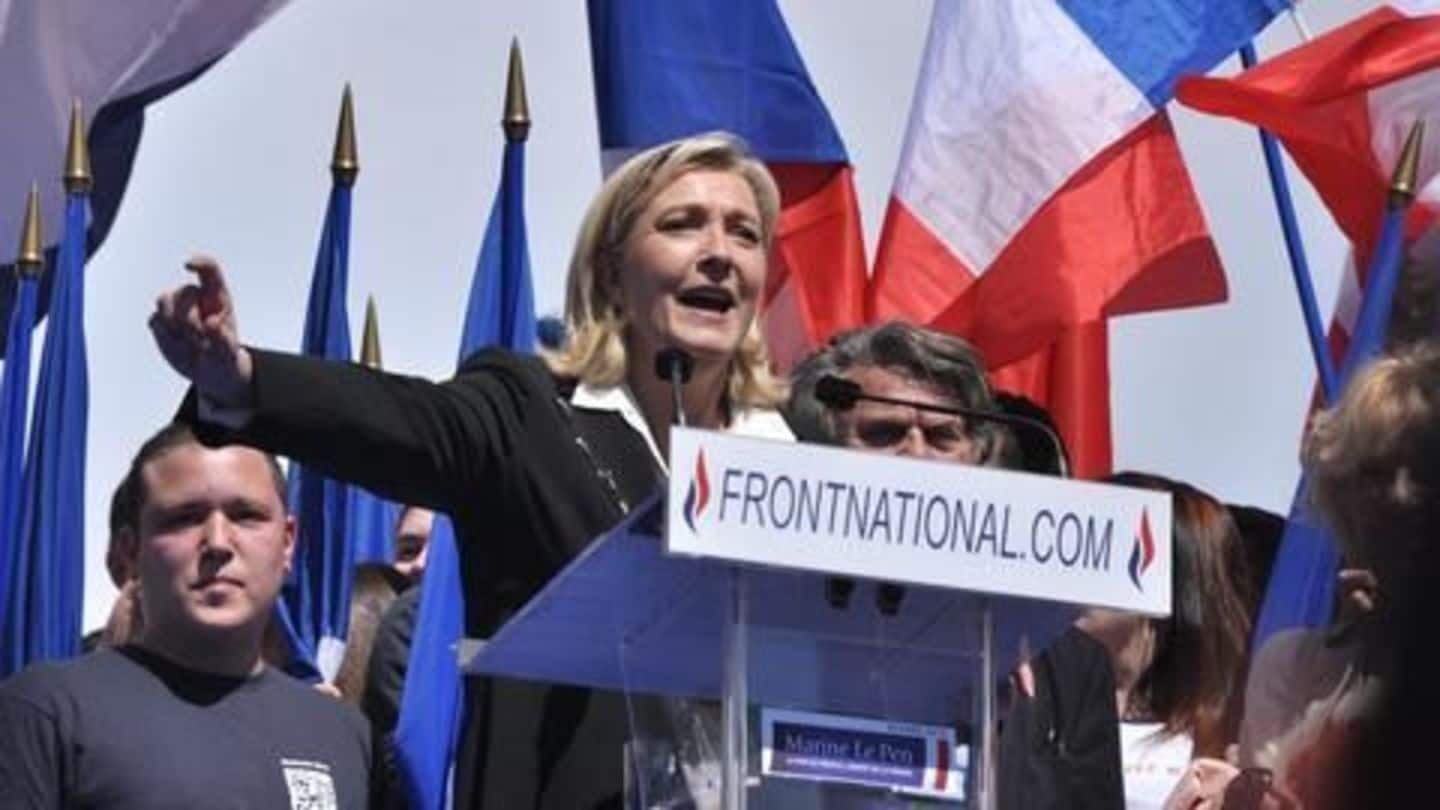
Le Penn vows to put France first
What's the story
Kicking off her presidential election campaign in France, far-right leader Marine Le Pen vowed to put France first in all her policies.
She promised that her National Front party would put French priorities ahead of other concerns. Statistics indicate that she is leading the first round of the election race.
Le Pen's rise is indicative of a larger tilt toward nationalism in the EU.
Factors
Factors contributing to the rise of nationalism
Difference of opinion over the refugee crisis precipitated as some countries wanted open borders while others did not.
Terror attacks in France and Germany attributed to refugees led to polarized public opinion on policy issues.
Sticking with the collective EU agenda was seen as a dilution of sovereignty and the Brexit vote made it appear like an alternative was possible.
Information
Anti-incumbency sentiment?
The rise of the right could be attributed to growing frustration over long standing liberal values coupled with economic mismanagement. Donald Trump's victory and Britain's decision to leave the EU are important milestones in the rise of nationalism in the West.
France
The National Front gathers momentum in France
The National Front is a far-right party that has been criticised for its anti-Semitic and anti-EU stance.
However, its current policy pitch focuses on security, immigration and Islam, all sensitive subjects in France, after suffering several Islamist terror attacks.
In 2015's regional elections the party won a major share of the votes, and opinion polls show their leader Marine Le Pen leading the presidential-race.
Germany
Alternative for Germany makes big gains
The Cologne station incident was a major setback for Angela Merkel's refugee policy.
The right-wing Alternative for Germany party, which calls for closed borders and is vehemently anti-Islam and anti-EU capitalised on the polarized public opinion.
The party barely existed a few years ago and won over 25% of the votes in Germany's state elections in 2016. This was more than Merkel's own party.
Austria
Freedom Party, a contender in Austria
In 2016, Austria's Freedom Party emerged as a serious political force, with their candidate Norbert Hofer losing the elections by 6.6% votes.
The party came to the fore with the motto "Austria First", seeking to strengthen borders and the army, limit immigration and favor Austrians in the job market.
The party now holds 22% of seats in Austria's national council.
Information
Netherlands, Hungary, Sweden follow suit
Several other EU members, including the Netherlands, Hungary, Slovakia, Sweden and Greece have all witnessed a sudden surge in support for nationalist parties. This is seen as a threat to EU integration.
Russia
Russia's gain?
Looser EU integration would make it easier for Russia to negotiate and trade with individual European countries. Moscow also expects that Trump's victory in the US, would considerably reduce NATO-Russia tensions.
In Eastern Europe, Bulgaria and Moldova witnessed surprise elections, where pro-Russia new-comers defeated established leaders.
The Netherlands also recently rejected a proposal for Ukraine to join the EU, much to Moscow's delight.